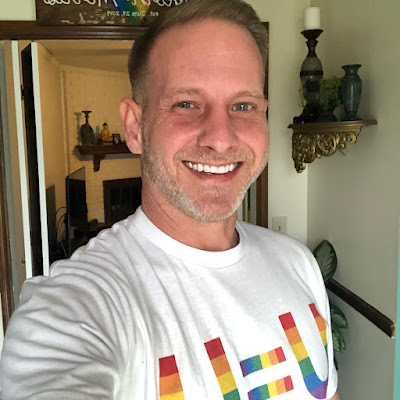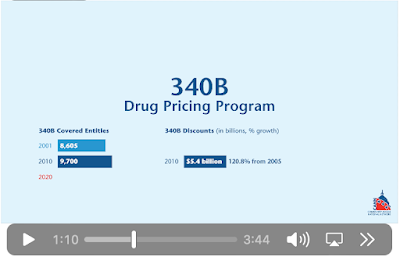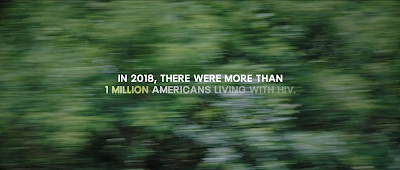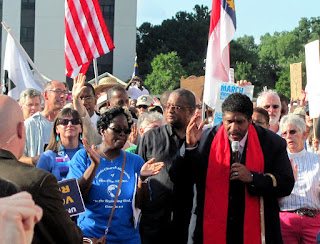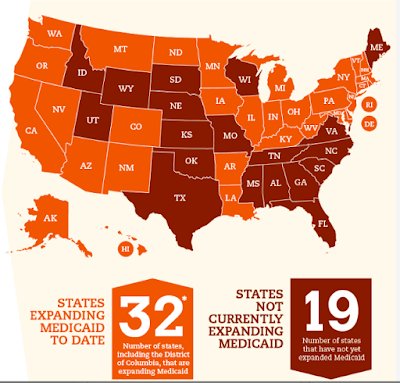By: Ranier Simons, ADAP Blog Guest Contributor
In 2023, Tennessee Governor Bill Lee, rejected nine million dollars in federal HIV funding from the Centers for Disease Control & Prevention (CDC). This meant that the pass-through grant contracts associated with the Integrated HIV Programs for Health Departments to Support Ending the Epidemic in the United States CDC-RFA-PS20-2010 grant and the Tennessee Integrated HIV Surveillance and Prevention Programs for Health Departments CDC-RFA-PS18-1802 grant ended in May of 2023.[1] The decision meant a significant cut in funding for HIV prevention, education, and treatment for public health centers and many community-based organizations. The adverse effects of the decision are materializing, and experts continue to sound the alarm about how devastating the outcomes will impact the state.
 |
| Photo Source: The Tennessee Conservative |
The governor stated he refused the funds to decrease dependence on federal funds and be more independent as a state. He also expressed that the move was to make it easier for organizations and public health departments to access funding without having to deal with bureaucratic red tape.[2] However, analysis shows that the decision was politically motivated. Lee is on public record expressing disapproval of two organizations that were HIV grant recipients, Planned Parenthood and a task force on transgender health issues.[3] Refusing CDC funding means that the state is no longer required to distribute funding based on science, evidence-based data, and research. The goal of the state was to replace the CDC funds with state funding.
In response to Tennessee’s refusal of funding, the CDC decided to try and circumvent the legislature. It decided to directly provide four million dollars in funding to United Way of Greater Nashville.[4] This would allow United Way to distribute funds to nonprofit organizations, such as Planned Parenthood, to continue their HIV prevention efforts. However, four million dollars is only half of the nine million dollars refused.
When the state government replaced the lost CDC funding with state funding, it was mainly local health departments that were guaranteed funding to make up for the cuts.[4] This meant the state health departments could make decisions concerning funding distribution that did not require alignment with CDC requirements. This was eventually followed by an announcement to reallocate funding away from the most at-risk priority communities, such as men who have sex with men, to new groups. The new groups are first responders, pregnant women, and survivors of sex trafficking. Studies are showing that this will result in unnecessary deaths and poor health outcomes because this group is not where the need resides.
 |
| Photo Source: Clinical Infectious Diseases |
A study published in July of this year in the journal Clinical Infectious Diseases spells out the negative ramifications of Tennessee’s state resource allocation. Men who have sex with men, transgender women, and heterosexual Black women are the evidenced-based identified priority demographic most affected by HIV in Tennessee.[5] The study projected conservative estimates the Tennessee decision would mean 166 preventable HIV transmissions, 190 additional deaths, and 843 life-years lost over 10 years. The study’s more pessimistic or worst-case scenario projections were 1359 preventable HIV transmissions, 712 additional deaths, and 2,778 life-years lost over 10 years.[5]
Comparatively, this means the reallocation in funding would be prohibitively damaging to the original priority group with negligible benefit for the new priority pivot. “Under Reallocation, MSM would comprise most of the HIV transmissions (77%), followed by TGW (8.6%) and HSBW (6.8%). First responders would contribute 0.5%, pregnant people 0.2%, and SST 6.9% to the total HIV transmissions over 10 years.”[5] The newly suggested priority populations only comprise %1 of all Tennesseans living with HIV compared to the CDC-defined priority populations, which comprise %99 percent.[6]
Funding losses have already begun to negatively affect agencies serving vulnerable populations. Before the change, CDC grant money provided stability for HIV programming for five years at a time. The new state-provided funds happen on a one-year cycle. The one-year budget rides on the auspices of the state legislature, which votes on it each year.[7] Reduced funding means loss of staff for many organizations. According to Amna Osman, CEO of Nashville CARES, “There’s no sustainable grant funding to support these positions…Employees really want some stability.”[7]
Moreover, the new funding plan routes money mainly to metro state health departments and groups associated with them. This translates into a drastic cut to resources for those in rural areas in addition to groups who, under the new reallocation priorities, would not be able to garner funding from the state.
 |
| Photo Source: The New York Times |
The motivation behind the original CDC funding was to concentrate efforts on HIV prevention, education, and treatment for those most in need in Tennessee. Prevention requires testing, surveillance, access to PrEP, and more. Before the funding reallocation, a third of those most in need of PrEP did not know where they could access it. Now, issues of access have worsened. Osman states she has heard from community members who say, “Well, I’m hearing there’s no dollars for prevention education for HIV. Then, that means ‘I think there’s no money for me to get a service,”[7] Memphis, Tennessee is second in the nation regarding the rate of new HIV cases. Over 7,500 people in Shelby County alone are living with HIV or AIDS.[8] That number is second only to Miami, Florida.[8]
HIV prevention and testing is not just about HIV. Testing involves STI testing. STI testing benefits the entire community as a public health safeguard as well as a tool in the fight to prevent HIV transmission. People living with HIV do not live in a vacuum, nor do those living with STIs. Effectively focusing funding and infrastructure on the populations that science and health professionals have identified as significantly at risk is the only way to reverse the tide in all of Tennessee’s communities. Only time will tell if voting and continued public and professional outcry, in combination with pressure from the medical community, will result in the legislature changing its course.
[1] Talley, P. (2023, January 17). Dear Colleagues Letter. Retrieved from https://wpln.org/wp-content/uploads/sites/7/2023/01/Notification-HIV-Funding-Changes.pdf
[2] Stillman, J. (2023, April 22). Tennessee Rejected HIV Funds From Feds, But The State Was Just Outsmarted. Retrieved from https://www.hivplusmag.com/politics/tennessee-rejected-hiv-funds-from-feds-but-the-state-was-just-outsmarted
[3] Cha, A., Nirallil, F. (2023, Januery 26). HIV at center of latest culture war after Tennessee rejects federal funds. Retrieved from https://www.washingtonpost.com/health/2023/01/26/tennessee-federal-hiv-funding/
[4] Watts, M. (2023, April 17). Federal HIV funding rerouted to nonprofits, bypasses Tennessee health department entirely. Retrieved from https://www.tennessean.com/story/news/local/2023/04/17/hiv-federal-funds-will-reroute-to-tennessee-nonprofits-state-cut-out/70116510007/
[5] Borre, E. D., Ahonkhai, A. A., Chi, K. K., Osman, A., Thayer, K., Person, A. K., Weddle, A., Flanagan, C. F., Pettit, A. C., Closs, D., Cotton, M., Agwu, A. L., Cespedes, M. S., Ciaranello, A. L., Gonsalves, G., Hyle, E. P., Paltiel, A. D., Freedberg, K. A., & Neilan, A. M. (2024). Projecting the potential clinical and economic impact of human immunodeficiency virus prevention resource reallocation in Tennessee. Clinical Infectious Diseases. https://doi.org/10.1093/cid/ciae243
[6] Ridings, M. (2024, July 11). Study Finds That Tennessee’s Shift in HIV Prevention Funding Will Lead to Poorer Health Outcomes for its Residents. Retrieved from https://www.massgeneral.org/news/press-release/tennessee-shift-in-hiv-policy-will-lead-to-poorer-outcomes
[7] Sweeney, C. (2024, October 22). Tennessee replaced its federal HIV funding with state money. Public health experts say the change is causing damage. Retrieved from https://www.wkms.org/health/2024-10-22/tennessee-replaced-its-federal-hiv-funding-with-state-money-public-health-experts-say-the-change-is-causing-damage
[8] Paul, A. (2024, August 13). Memphis ranks second in the nation in highest number of new HIV cases. Retrieved from https://wreg.com/news/memphis-ranks-second-in-the-nation-in-highest-number-of-new-hiv-cases/l
Disclaimer: Guest blogs do not necessarily reflect the views of the ADAP Advocacy Association, but rather they provide a neutral platform whereby the author serves to promote open, honest discussion about public health-related issues and updates.




